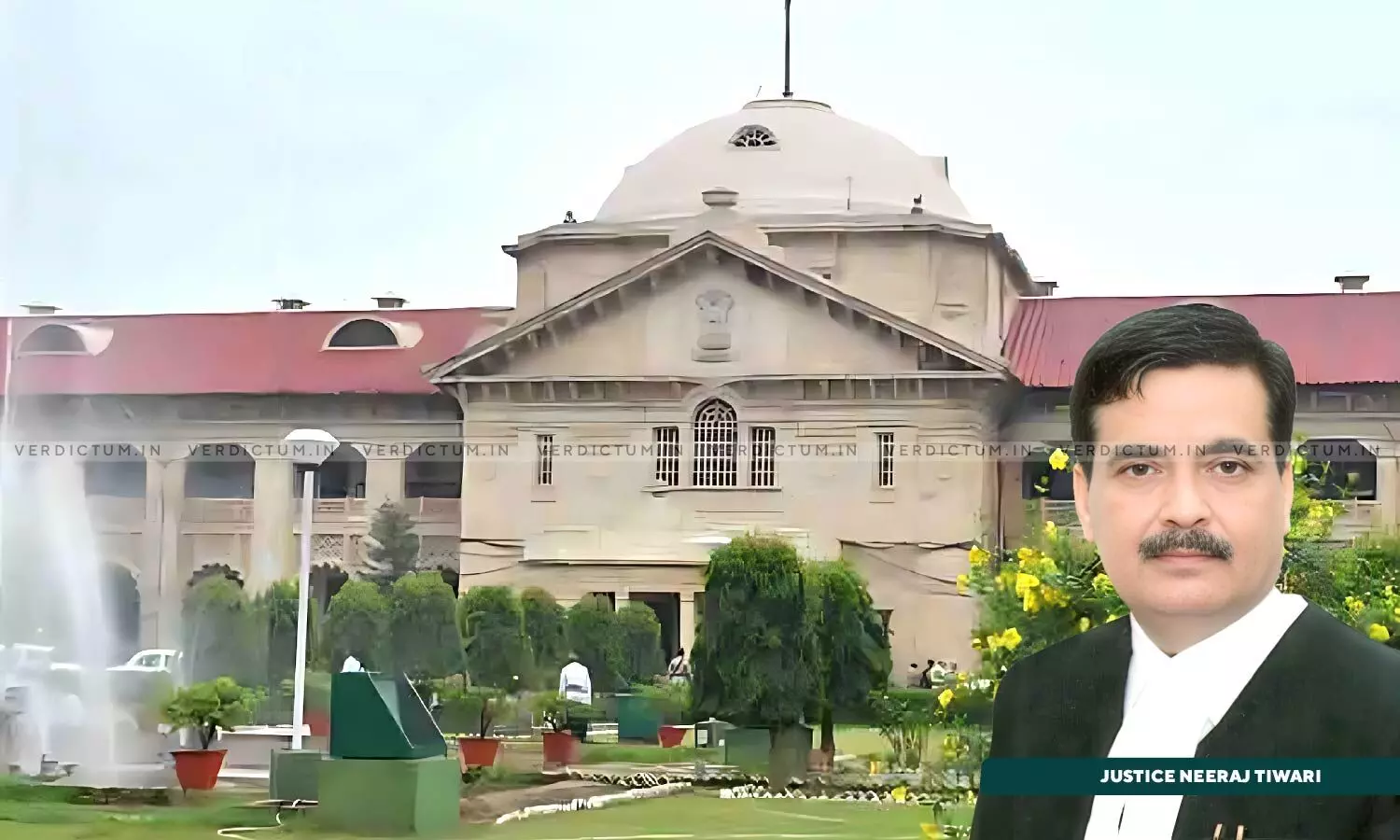
Award Passed By Arbitral Tribunal Is Deemed To Be Decree; Execution May Be Filed Anywhere Where Decree May Be Executed: Allahabad HC
 |
|The Allahabad High Court reiterated that an award passed by the Arbitral Tribunal is deemed to be a decree under Section 36 of the Arbitration & Conciliation Act, 1996 and the enforcement of an award through its execution can be initiated anywhere in the country where the decree can be executed.
The High Court was considering a matter where the land of the respondents had been acquired under National Highways Act, 1956 and they approached the Court for execution of the award passed under the Arbitration Act.
The Single-Judge Bench of Justice Neeraj Tiwari placed reliance upon the judgment of the Apex Court in Sundaram Finance Limited Vs. Abdul Samad and Ors.: AIR 2018 SC 956 and explained, “The Court has taken a specific view that while award passed by arbitral tribunal is deemed to be a decree under Section 36 of the Act, 1996 and there was no deeming fiction anywhere to hold that the court within whose jurisdiction the arbitral award was passed, should be taken to be the court which passed the decree.”
Advocate Shiv Kumar Singh represented the Petitioner while C.S.C. Devansh Misra represented the Respondent.
The facts of the case suggested that the land of respondents had been acquired for widening of National Highway No. 2 at District-Etawah and in light of Section 3G(2) of the National Highways Act, 1956 amount of compensation was determined. Section 3G(5) provides that if either of the parties are not satisfied with the determination of the amount, on an application by either of the parties the amount shall be determined by the arbitrator to be appointed by the Central Government. In the present case, Additional District Magistrate fixed the amount of compensation against which the petitioners filed an arbitration application under Section 3G(5) before the Additional Commissioner appointed by the Central Government. Ultimately, the final award was passed in the year 2019.
While the appeals under the Arbitration & Conciliation Act were pending, the respondents preferred execution of the award before the District Judge which was transferred to Additional District Judge. The petitioner’s objection raising the issue of jurisdiction of the court was rejected. Aggrieved thereby, the petitioners approached the High Court.
It was the case of the petitioners that the office of the respondent is situated at Kanpur and from there it carries its business. Further, arbitration also took place at Kanpur, therefore, Section 36 and provisions of CPC would be applicable and jurisdiction of the execution case would lie with the District Judge, Kanpur.
On the contrary, the Respondents submitted that the arbitral proceeding had been terminated after pronouncement of award, therefore, Section 42 of the Act, 1996 about the jurisdiction would not be applicable for filing of execution proceedings. It was also submitted that so far as Section 36 is concerned, it is a deeming provision and therefore, provision of CPC would not be applicable in the present case.
The main issue before the Bench was whether jurisdiction for filing an execution case lies with the Judgeship of Kanpur or Etawah.
The Bench placed reliance upon the judgment in Sundaram Finance Limited Case (Supra) wherein it has been held that while award passed by arbitral tribunal is deemed to be a decree under Section 36 of the Act, 1996 and there was no deeming fiction anywhere to hold that the court within whose jurisdiction the arbitral award was passed, should be taken to be the court which passed the decree. It has been held therein that the Act transcends all territorial barriers and execution may be filed anywhere in the country, where the decree may be executed and there is no requirement for obtaining transfer of decree from the Court. It was also observed therein that the enforcement of an award through its execution can be initiated anywhere in the country where the decree can be executed and there is no requirement of obtaining a transfer of the decree from the Court which would have jurisdiction over the arbitral proceedings.
Coming to the facts of the present case, the Bench observed that the dispute is arising out of acquisition of land of petitioners at District Etawah which meant the property and assets of the petitioners was situated there.
The Bench further held, “...therefore, even if the office of petitioners is at Kanpur or arbitration award was pronounced at Kanpur, that would make no difference in filing of execution proceeding at Etawah in light of interpretation made by the Hon’ble Apex Court and the provision of CPC as well as Act, 1996 occupying the field. Therefore, this Court is of the firm view that impugned order is very well in conformity of the law laid down by the Hon’ble Apex Court.”
On the issue of acquiescing the right to raise objection about the jurisdiction, the Bench said, “Undisputedly against an award given at Kanpur, petitioners themselves have preferred appeal under Section 34 of the of the Act, 1996 before District Judge, Etawah, therefore, petitioners acquiesce their right and their objection is certainly barred by Section 4 of the Act, 1996. He cannot raise these objections at this stage.”
Thus, finding no illegality or infirmity in the impugned order, the Bench dismissed the Petition.
Cause Title: National Highway Authority Of India And Another v. Jagpal Singh And 2 Others [Neutral Citation-2024: AHC:175916]
Appearance:
Petitioner: Advocate Shiv Kumar Singh
Respondent: C.S.C. Devansh Misra and Advocate Devesh Kumar Verma